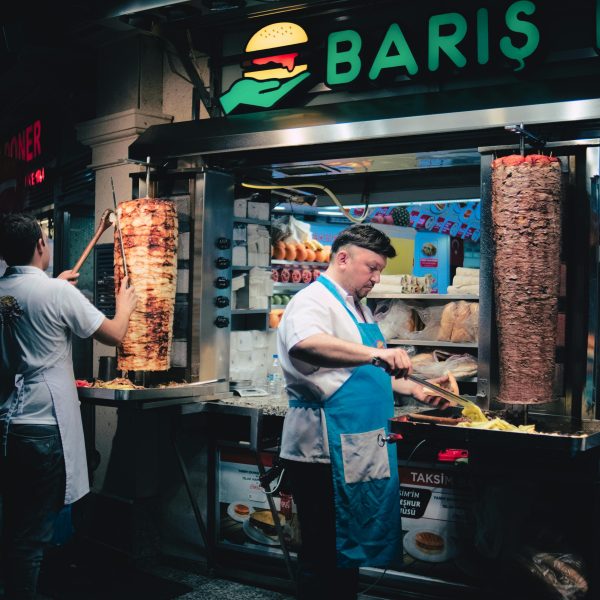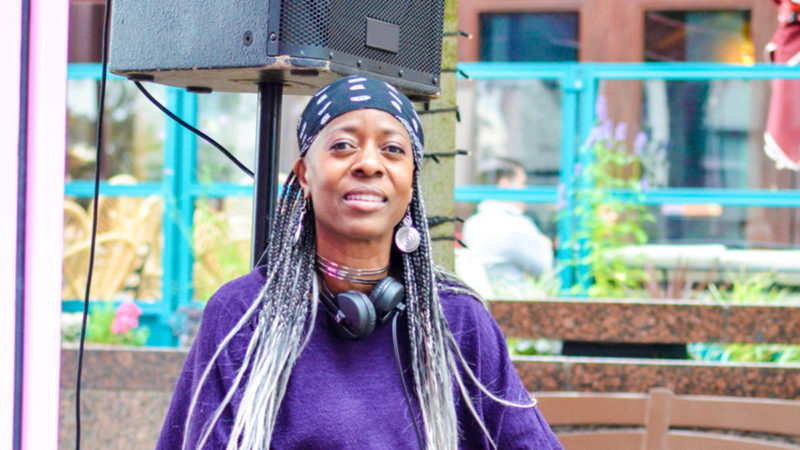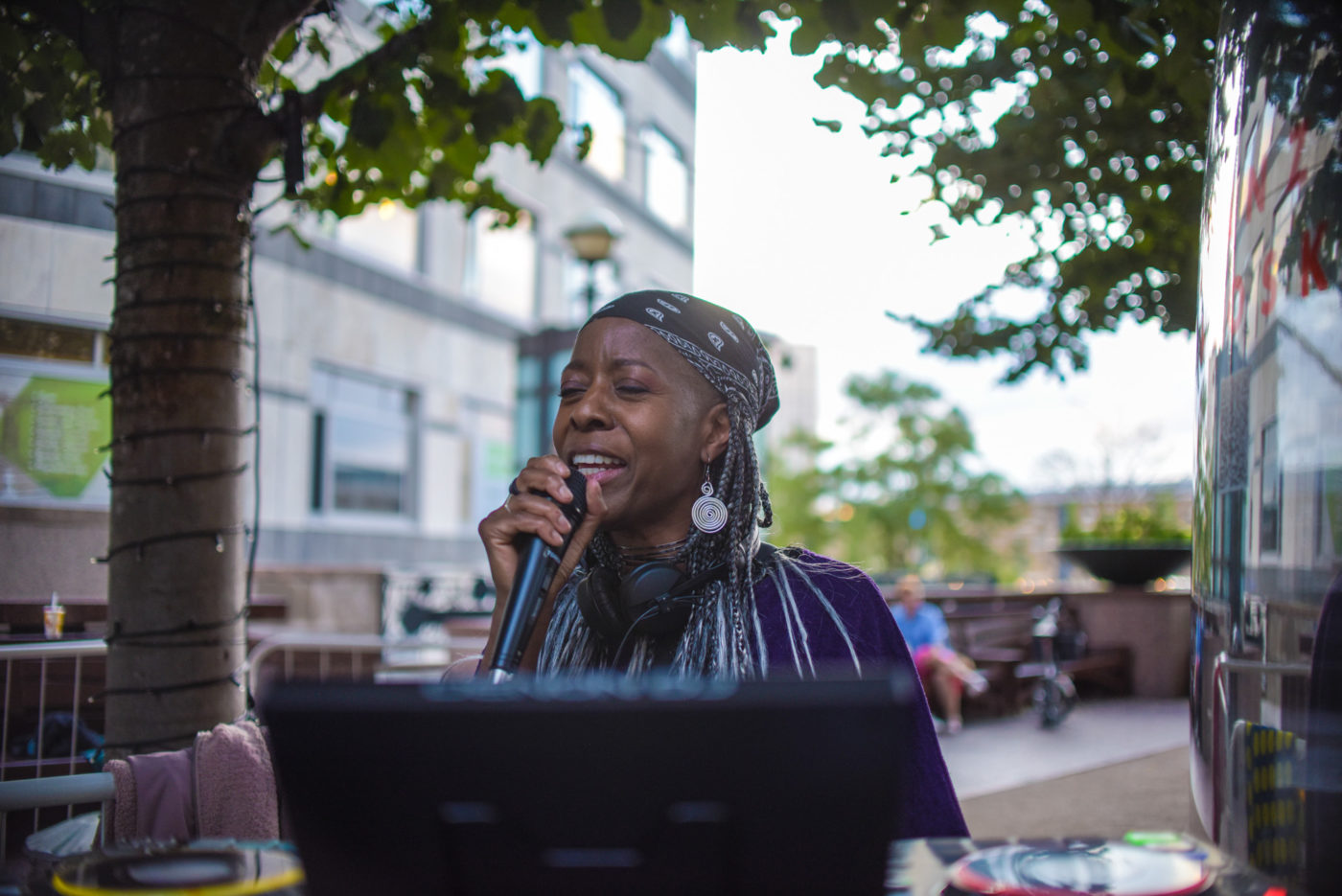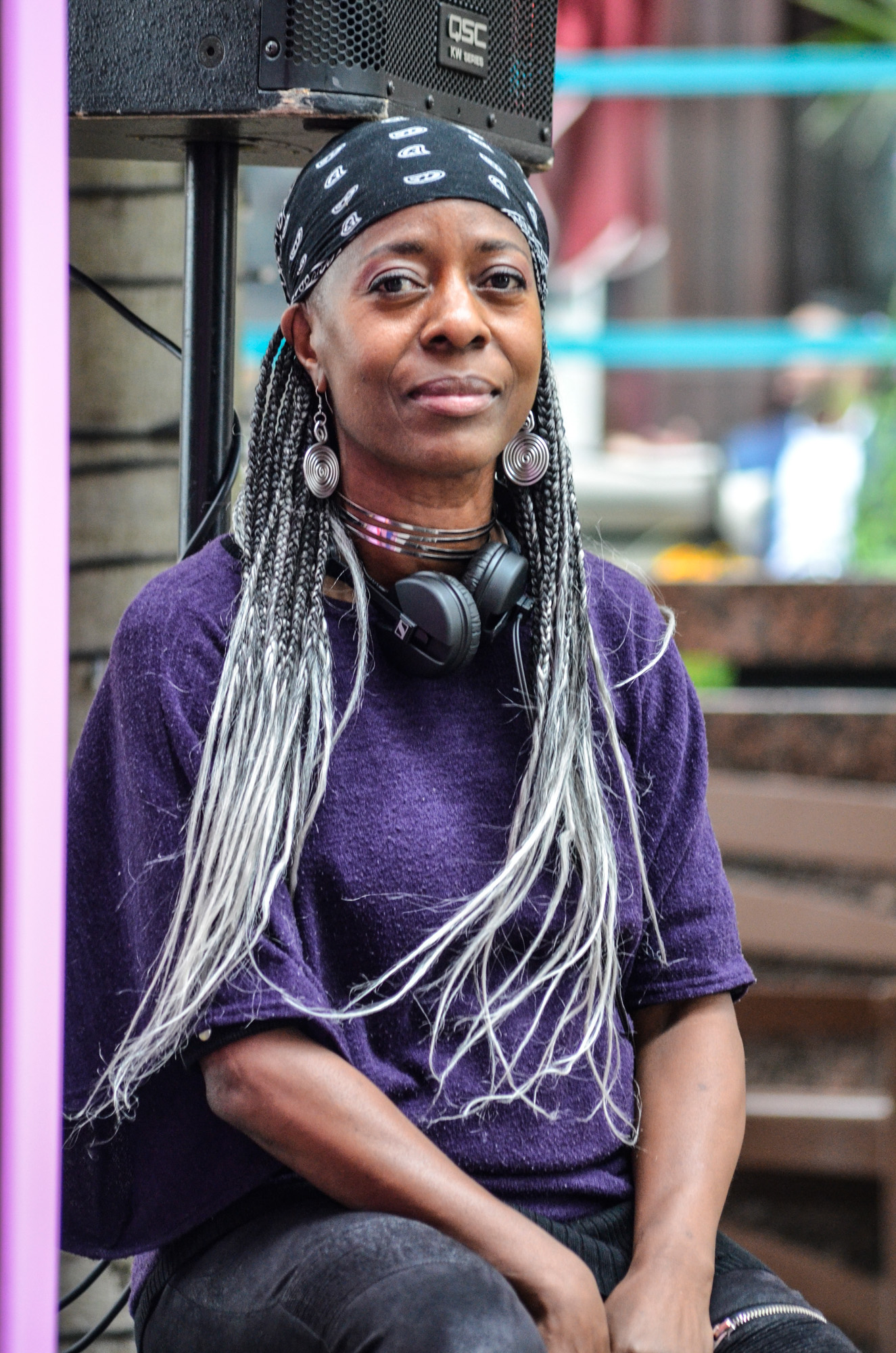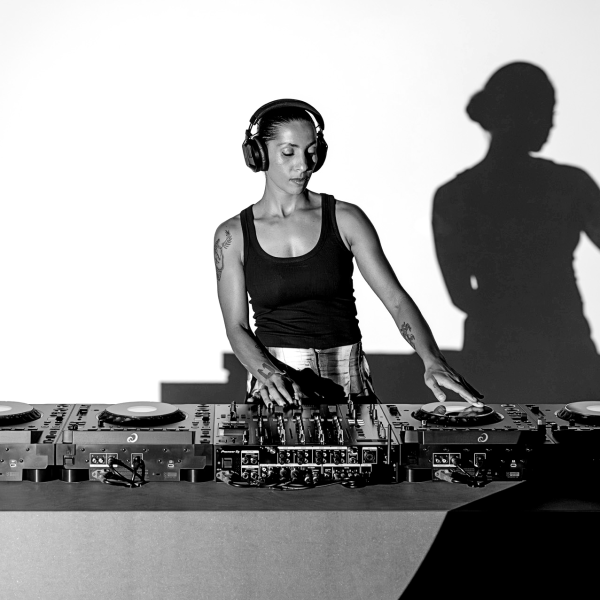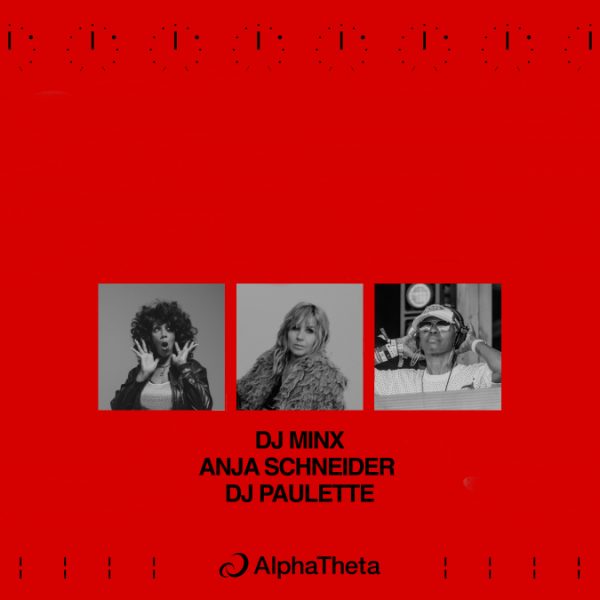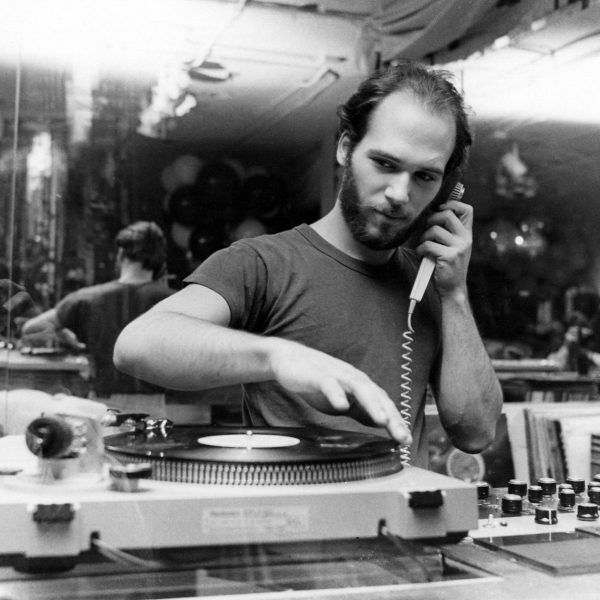If I came to you, and I was like, “Linett, I’ve got this idea, I’ve got a few mates and we want to start a sound but we don’t really know where to get started”, what would be some guiding principles to get things rolling?
I would say, “What is your philosophy? What is it you’re trying to do? To better humanity? What is it you want to bring?” Stick to the core, the roots of it. Because, if you say, “Oh, I want to make money,” or whatever, to me you’ve already moved away from what it’s about. So get your philosophy right first, and that might lead the way in terms of the music that you choose. As I say, there isn’t one set style of music. It doesn’t have to be reggae music, it might be drum & bass, or even techno.
So then, in terms of your hardware, think about and research how you’re gonna get that. Look at templates for building speakers, seek out support from those whose skills and knowledge are highly regarded within the culture, get some people to help carry your stacks, a driver with a van. Then get out there.
What’s your identity right now, how would you define yourself and what brings you together? It shouldn’t just be one person. Keeping up the tradition and it’s got to be positive vibes. That’s the number one thing, I would say. It’s got to be positive.
In light of positivity, his name has already come up, the mighty Jah Shaka, God rest his soul. That was a real moment when we witnessed his passing. I feel emotional even talking about it because the outpouring of grief but also love and reverence was universal. I wanted to touch on the importance of sound systems and the culture connected to Jah Shaka and the love and the joy that he brought, and the transcendence, just through selecting, and the message that he was bringing, which was consistently rooted in positivity, love, respect and community. Why is it important that sound systems still exist in today’s culture and society?
I think it’s important because of that universal message. It ties us together as humans. It’s a very challenging time. Just being human is tough right now. So it’s more important than ever that we can find a way to gather, to have a commonality, and some positivity. Even if it’s for that one moment, it’s almost like providing a service. To me, sound system is medicine. When it’s done with those core ingredients, if it’s not got those ingredients in it, it’s not going to be good medicine, it’s not going to be healing.
That’s why we need to hang on to it, because there’s so many elements in life right now that are pulling us away from that. The technology that’s made things you can just listen to personally not socially. Or the social media platforms that just elevate one individual. Or sexism or racism. These things tear us apart. That’s why we need to try and be the very best that we can be as humans.
That’s what I’m doing with Lin Kam Art. It’s early days. I haven’t got there yet, to be honest, it’s like trying to gather like-minded people in that respect. For the events which I’ve produced for Lin Kam Art you won’t find things like jerk chicken there. Because to me as a vegan, that’s not peace. Everything, even down to what we consume, while we’re listening to the music has to be the about love. That’s the levels that I’m trying to get to, where it’s love in the deepest sense.
There’s something so empowering about gathering together and being reminded, through a collective, unified experience with music, that we’re all essentially the same. Obviously, we’re all very individual as well. But when you’re on a dance floor, or when you’re in front of a sound system, you do get to a point you’re just one with each other.
Yeah, with each other and the music. Going back to the philosophy and the consciousness, I guess that’s the key word—conscious—because if you’re playing very negative music with cursing, that kind of music, sometimes it gets a bit off balance. I always have tried to say, you play right. We don’t play those raw versions, we don’t play that type of music, we don’t use that type of negative language on the mic to the crowd. I don’t think that negativity speaks to the true philosophy of sound system culture and that’s how things can get a bit out of sync.
That’s why for me, starting afresh, where we can maybe go back to the core. I’ve moved away from where I was, because it’s not just about the hype of the latest music, there’s got to be a bit of consciousness. I think that’s to be expected of everyone that’s around that—you embody the sound system philosophy through your actions, as well as your words and your deeds. It’s a kind of guidance for people. I’m not a religious person, but people say to me, “You’re the most religious, spiritual person I’ve ever met.” Being peaceful, loving, that’s inside us. The majority of human beings know deep down.
This is all such a counteraction to the messaging and the dominance of the systems that we live in—the political system, economic system etc. There’s a real strength in having sound systems and everything that’s associated with them. By coming together, enjoying music, celebrating each other, rooted in love, we’re counteracting, we’re working against the systems that are trying to oppress us and to divide.
Exactly. That’s my next challenge with Carnival and the sound systems there, to try and push forward with that, going back to the values because things kind of moved away a lot from them. I’m still going to be looking to give that opportunity to the next generation of those that haven’t had a chance. I’m also looking to champion females. Get some visibility to us. I definitely want to talk a lot more about the visibility of females within sound system culture this year.
Last year was more focused on the next gen. But we need more representation in 2023. Some of the women are there, but they’re in the background and I get it because you end up becoming a target. I’ve got challenges with respect to that, since I’ve put myself forward.
What has sound system culture done for you on a personal and professional level?
A lot of it comes through the music for me, because I was a teenager in the ‘80s. The sound system brought through a particular way of being and thinking which for me, was hip-hop. That whole peace-loving thing, I very much embedded that. Just hearing certain conscious things in the music, which made me want to go and read up myself and learn for myself, which has helped to shape an identity. It made me feel connected to my roots, my culture, Jamaican heritage, and proud of it.
It’s put me in touch with a lot of different people, just connecting to other beautiful human beings. I really appreciate that. It’s given me confidence as well. I’m just grateful to have a platform to be able to just talk in this way and to share and to help others and pay homage to those that paved the way for us.
And how about the impact Carnival has had on you?
Personally, as I’ve mentioned before, I’m of Jamaican heritage, both my parents are from Jamaica. My mother settled in the Ladbroke Grove area when she first came over to London as a teenager, in the late 1950s. So it’s always been something that I’ve seen as part of my identity, my heritage, my culture, particularly sound systems as well. It was just great knowing that, once a year, there was this place that was local and you’d see everyone, family and friends. Seeing how it’s become this iconic event for British culture has been really beautiful to see.
Professionally, I’ve introduced Carnival at the University of the Arts on the performance program. I’ve introduced it to both the MA program and the BA program, which is performance design and practice at Central Saint Martins. I’ve introduced performance through carnival art, which is something that hadn’t been done before. I’ve really tried to elevate, from an academic point of view, the artform and to connect with other academics, who are introducing this artform to students around the world. I lecture in carnival arts. I’m also going to be working on launching a program that is celebrating and developing females in sound system culture as well. That’s something that I’m passionate about, and that I’m also doing on a professional level, as well as being an artist.
Each year I do some sort of art project at Carnival. Last year, I did a mural, which was to honour and to shine more of a spotlight on the founder of Notting Hill Carnival, Rhaune Laslett. I did that on Kensington Park Road outside of a gallery. That was really well received. Another example of that was in 2017, the year of the Grenfell tragedy. I was part of the group of artists who painted pieces around the Carnival footprint. This was to honour those who lost their lives in Grenfell.
Finally, what are your thoughts on the significance of Carnival? It’s been around since the mid-’60s, and has grown into an international phenomenon. What does it mean to today’s world?
It started off as a multicultural event back in 1966 with Rhaune Laslett. It was a children’s fair with all nationalities, Caribbean, Irish, Polish, African, people from all parts of the world were involved in that. Then she started to work more with Trinidadian musicians, like Russell Henderson and so on, which is when its Caribbean roots started to come through. Seeing what it’s become now, I’m very proud to be part of that. It’s a great example to humanity about what we can do as people, positively. It really highlights the benefits to our wellbeing of coming together in carnival culture. For people who might not be familiar with Caribbean culture and some of the elements of it, it’s a spectacular showcase for that.
We have really groundbreaking, talented creatives who help make up the Carnival experience at Notting Hill. I could mention so many names, whether it’s Carl Gabriel, who’s been one of the founders in terms of the mas costumes and the structures that he builds. He’s helped so many designers with the construction of their costumes.
Then the iconic sound systems, like Mastermind, Saxon, Channel One and the incredible Aba Shanti-I. They’re also part of the experience that have gone on to become something that’s world-class, a real feature. People travel from around the world. It brings a huge amount into the economy. I think it’s estimated to bring in at least 100 million pounds over that period. It’s an incredible event that is still free, just to mention that as well. It’s not ticketed.
Its roots come from a tragic beginning, a racist murder of a Black man, Kelso Cochrane, and here we are, all these years later, together, triumphantly, all nationalities in unity. So it’s a real force for good and positivity. It’s had an incredible impact and has such a legacy. People love it. Everyone feels very passionate about it and it will always remain on the streets of Notting Hill. That’s why it’s called the Notting Hill Carnival.
